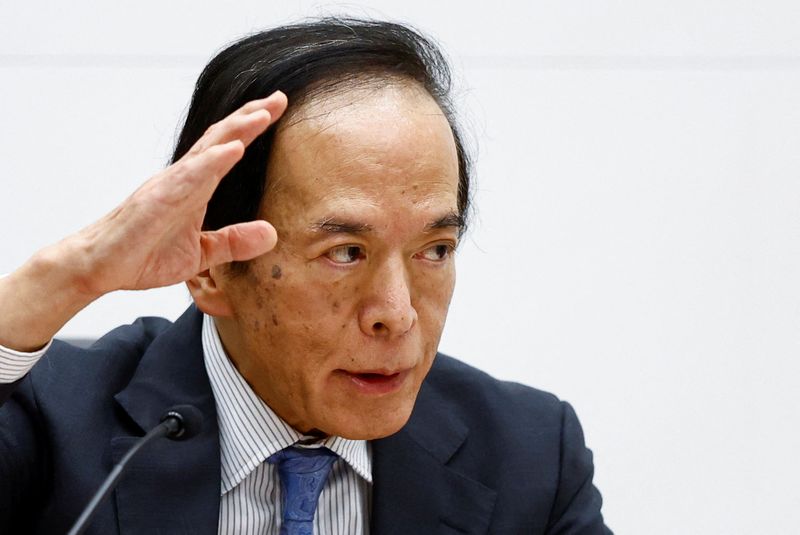By Leika Kihara and Satoshi Sugiyama
(Reuters) -Bank of Japan Governor Kazuo Ueda on Friday reaffirmed his resolve to raise interest rates if inflation stayed on course to sustainably hit the 2% target, but warned financial markets remained unstable.
Ueda said the market volatility seen in early August was due to rising fears of a U.S. recession, stoked by the country's weak economic data, while the BOJ's interest rate hike in July led to a sharp reversal of "one-sided yen falls".
"Markets at home and abroad remain unstable, so we will be highly vigilant to market developments for the time being," Ueda said in parliament, where he was summoned to explain the BOJ's decision in July to raise interest rates.
Ueda stressed the BOJ would scrutinise how market volatility and its decision to raise interest rates in July affect the economic and price outlook.
But he said there was "no change to the BOJ's basic stance to adjust the degree of monetary easing if it became convinced that economic and price developments were moving as forecast."
The remarks suggest the BOJ may spend more time than initially expected in considering its next rate hike, but stay on course to gradually hike borrowing costs from current still ultra-low levels.
"Japan's short-term rates are very low. If the economy is in good shape, they will move up to levels deemed neutral," Ueda said. But he added that there was "very high uncertainty on where rates will eventually rise to."
The BOJ ended negative interest rates in March and raised its short-term policy rate to 0.25% in July in landmark steps away from a decade-long radical stimulus programme.
In tightening policy in July, Ueda said the BOJ would raise rates further if inflation remains on track to durably hit its 2% target in coming years, as the board projects.
The surprise July rate hike and Ueda's hawkish signal triggered a market rout, forcing his deputy to offer dovish reassurances that no hikes would come until markets stabilise.

Ueda said volatile moves in the yen could affect the BOJ's median inflation projections, in which case the board would debate whether a policy shift was needed.
However, even if yen moves do not affect the BOJ's median forecasts, they could warrant changing policy if they posed big enough upside or downside risks to those projections, he said.